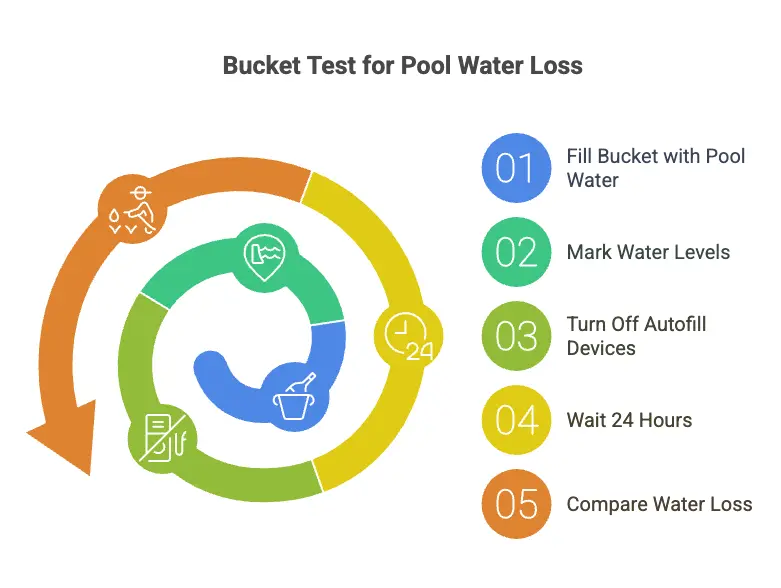June 3, 2025
Is It Normal to Lose 1/2 Inch of Water a Day in Your Pool? Understanding Pool Water Loss, Evaporation, and Leaks
Summarize Blog with AI
Every pool owner eventually notices their pool water level dropping and wonders: Is my pool losing too much water? If you’re seeing a loss of 1/2 inch of water a day, you’re not alone. But is this normal, or do you have a problem like a leak? This article dives into the facts about pool water loss, the difference between evaporation and leaks, and what you can do to protect your swimming pool investment. Read on to learn how to spot the signs, troubleshoot issues, and keep your pool water where it belongs.
Water loss in a swimming pool is expected due to evaporation, splash-out, and routine maintenance. On average, most pools lose about 1/4 inch of water per day from evaporation, though this can range from 3mm to 7mm (about 1/8 to 1/4 inch) depending on environmental conditions like wind, humidity, and temperature. Over a week, this adds up to about 1.5 to 2 inches, which is considered normal for many residential pools.
Evaporation is the primary reason for pool water loss. It happens when heat from the sun or air temperature causes water to turn into vapor and escape into the atmosphere. Factors that increase evaporation rates include:
Losing up to 1/2 inch of water per day can be within the range of normal evaporation, especially during hot, dry, or windy weather. However, if your pool consistently loses more than 1/4 inch per day under average conditions, or if you notice a sudden increase in water loss, it may indicate a problem such as a pool leak. For most pools, a loss of 1/2 inch per day is at the upper end of normal evaporation rates, but if you’re unsure, it’s best to investigate further.
To determine if your pool water loss is due to evaporation or a leak, you need to compare the rate at which your pool loses water to the expected evaporation rate. If your pool is losing water faster than normal evaporation, it may have a leak.
A sudden, unexplained drop in the water level, increased chemical use, or soggy spots around the pool are all signs that you may have a pool leak. Consistently needing to add more water than usual is another red flag.
The bucket test is a simple, effective way to determine if your pool water loss is due to evaporation or a leak. Here’s how to do it:
If the pool water level drops more than the bucket water level, your pool may have a leak. If both levels drop equally, the loss is likely due to evaporation.

Besides evaporation, pools can lose water due to:
Environmental factors like wind and sun exposure, as well as pool design (surface area, water features), can also increase water loss.
Pool leaks can occur in several places:
Leaks can be small and hard to spot, but over time they can lead to significant water loss and costly repairs.
If you suspect your pool is leaking:
Prompt leak detection and repair can prevent further damage and save water.
To minimize pool water evaporation:

By understanding the causes of pool water loss and taking proactive steps, you can enjoy your swimming pool while conserving water and avoiding costly repairs. Contact us today to learn more!
Our Blog